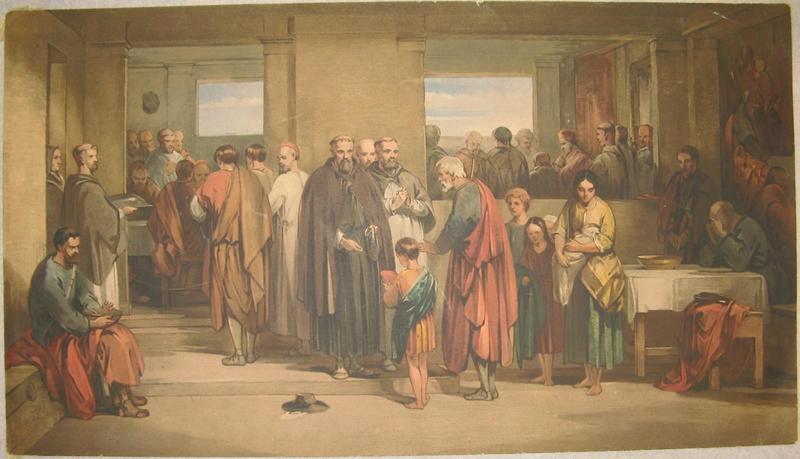Environ 7 résultats pour « Laïc »
-
Laïc
Est un laïc celui qui ne relève pas du clergé, notamment dans une société chrétienne. Les personnes qui n'en relèvent pas font partie du laïcat. Dans l'Église catholique romaine, on désigne comme « laïc » les personnes qui, tout en appartenant au sacerdoce commun des fidèles, n'ont pas la responsabilité du sacerdoce ministériel. Cette simple complémentarité des genres clerc/laïc s'est finalement transformée, avec la loi de séparation des Églises et de l'État survenue en France le 9 décembre 1905, en opposition entre les deux : l'État laïque n'autorise plus aucune influence du religieux sur ses institutions comme l'école publique.
-

-
- Artiste(s) :
- Anonyme
JEUNE FILLE TENANT UN COEUR ENFLAMME
-
- Domaine(s) :
- Peinture
-
- Sujet représenté :
- Chapeau
- Cœur
- Flamme (combustion)
- Laïc
- Plume
- Scapulaire (vêtement)
-
- Datation :
- XVIIIe siècle
-
-

Le lutrin d'Aulnay-les-Bondy
-
- Domaine(s) :
- Peinture
-
- Sujet représenté :
- Autel (religion)
- Clergé
- Laïc
- Lutrin
-
- Datation :
- XIXe siècle
-
-

-
- Domaine(s) :
- Croyance
- Ethnologie
-
- Désignation :
- figurine (élément d'ensemble) ; groupe non relié (ensemble)
-
- Sujet représenté :
- Fête-Dieu
- Laïc
- Procession religieuse
-
- Datation :
- XIXe siècle
- XXe siècle
-
-

-
- Domaine(s) :
- Croyance
- Ethnologie
-
- Désignation :
- figurine (élément d'ensemble) ; groupe non relié (ensemble)
-
- Sujet représenté :
- Fête-Dieu
- Laïc
- Procession religieuse
-
- Datation :
- XIXe siècle
- XXe siècle
-
-

-
- Désignation :
- pleurant ; élément d'ensemble
-
- Sujet représenté :
- Laïc
- Livre (document)
- Manteau (vêtement)
- Pleurant (architecture)
-
- Datation :
- XVe siècle
-

-
- Artiste(s) :
- Anonyme
Scène d'église
-
- Domaine(s) :
- Peinture
-
- Sujet représenté :
- Autel (religion)
- Calice (liturgie)
- Cierge (bougie)
- Curé
- Laïc
- Servant d'autel
-
- Datation :
- XIXe siècle
-
-

-
- Artiste(s) :
- Anonyme
Assemblée religieuse
-
